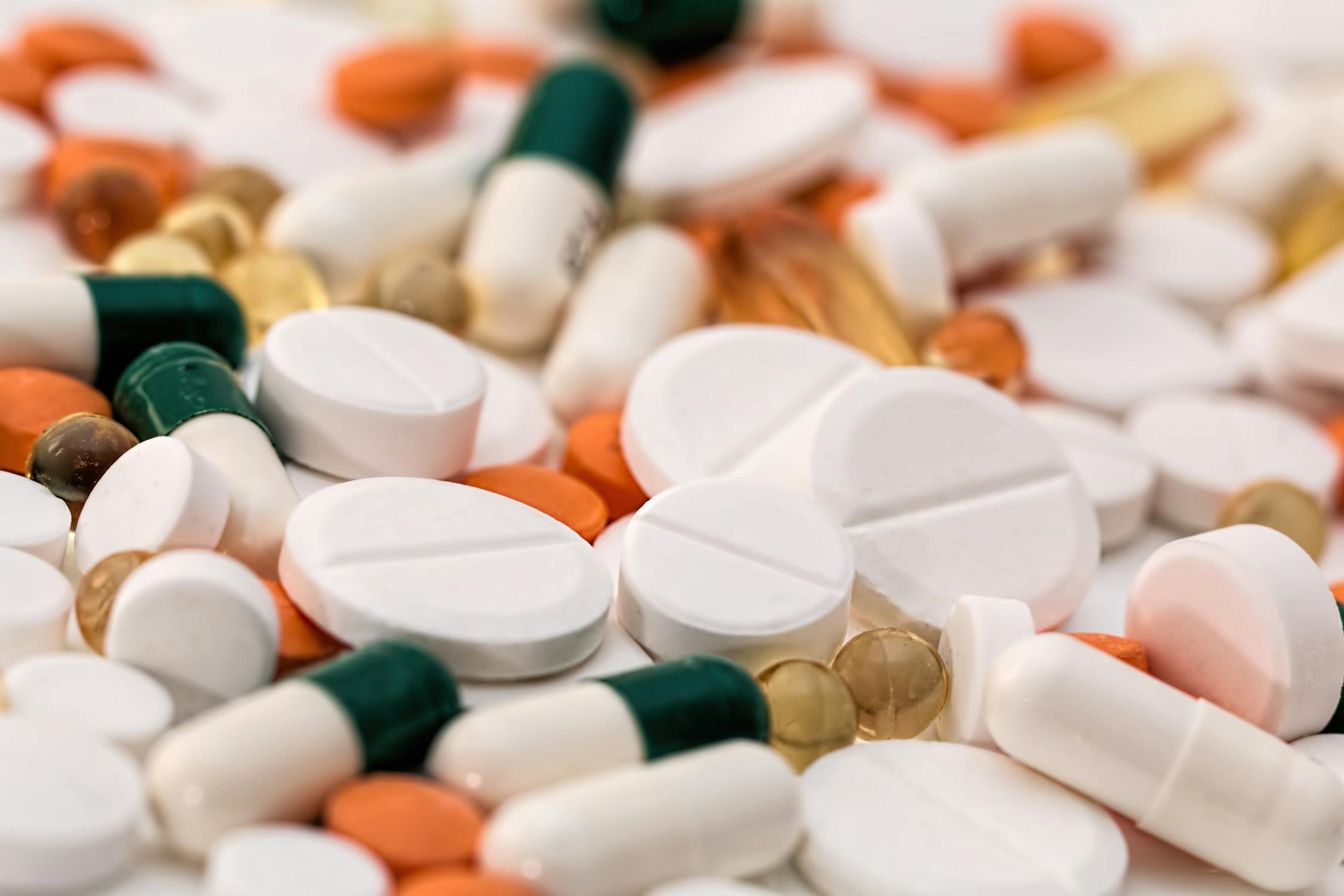The World Health Organization (WHO) publishes a list of essential medicines, which is a guide to the most necessary medications for health systems to have available to meet the needs of their populations. Here are the top 100 essential medicines and their classification:
1. Acetylsalicylic acid – Nonsteroidal anti-inflammatory medication (NSAID)
2. Albendazole – Antihelminthic medication
3. Alteplase – Thrombolytic medication
4. Amikacin – Aminoglycoside antibiotic
5. Aminophylline – Bronchodilator medication
6. Amiodarone – Antiarrhythmic medication
7. Amitriptyline – Tricyclic antidepressant medication
8. Amlodipine – Calcium channel blocker medication
9. Amoxicillin – Penicillin antibiotic medication
10. Ampicillin – Penicillin antibiotic medication
11. Artemether-lumefantrine – Antimalarial medication
12. Atorvastatin – HMG-CoA reductase inhibitor (statin) medication
13. Azithromycin – Macrolide antibiotic medication
14. Benzathine benzylpenicillin – Long-acting penicillin antibiotic medication
15. Benznidazole – Antiparasitic medication
16. Bisoprolol – Beta-blocker medication
17. Budesonide – Inhaled corticosteroid medication
18. Calcium gluconate – Electrolyte medication
19. Carbamazepine – Antiepileptic medication
20. Cefotaxime – Third-generation cephalosporin antibiotic medication
21. Ceftriaxone – Third-generation cephalosporin antibiotic medication
22. Cefuroxime – Second-generation cephalosporin antibiotic medication
23. Chloramphenicol – Broad-spectrum antibiotic medication
24. Chlorphenamine – First-generation H1 receptor antagonist (antihistamine) medication
25. Ciprofloxacin – Fluoroquinolone antibiotic medication
26. Clindamycin – Lincosamide antibiotic medication
27. Clopidogrel – Platelet inhibitor medication
28. Co-trimoxazole – Combination of trimethoprim and sulfamethoxazole antibiotic medication
29. Cyclopentolate – Antimuscarinic medication
30. Diazepam – Benzodiazepine medication
31. Diclofenac – Nonsteroidal anti-inflammatory medication (NSAID)
32. Dihydroergotamine – Ergot alkaloid vasodilator medication
33. Diltiazem – Calcium channel blocker medication
34. Diphenoxylate – Opioid medication for diarrhea
35. Dipyridamole – Platelet inhibitor medication
36. Dobutamine – Beta-1 receptor agonist medication
37. Dopamine – Dopamine receptor agonist medication
38. Doxycycline – Tetracycline antibiotic medication
39. Enalapril – Angiotensin-converting enzyme inhibitor (ACE inhibitor) medication
40. Epinephrine – Adrenergic receptor agonist medication
41. Erythromycin – Macrolide antibiotic medication
42. Ethambutol – Antituberculosis medication
43. Famotidine – Histamine H2 receptor antagonist medication
44. Fluconazole – Antifungal medication
45. Flucytosine – Antifungal medication
46. Fluoxetine – Selective serotonin reuptake inhibitor (SSRI) antidepressant medication
47. Folic acid – Vitamin B medication
48. Furosemide – Loop diuretic medication
49. Ganciclovir – Antiviral medication
50. Gentamicin – Aminoglycoside antibiotic medication
51. Glucose – Simple sugar medication
52. Haloperidol – Fast-acting antipsychotic medication
53. Heparin – Anticoagulant medication
54. Hydralazine – Vasodilator medication
55. Hydrochlorothiazide – Thiazide diuretic medication
56. Hydrocortisone – Corticosteroid medication
57. Ibuprofen – Nonsteroidal anti-inflammatory medication (NSAID)
58. Imipenem-cilastatin – Carbapenem antibiotic medication
59. Imipramine – Tricyclic antidepressant medication
60. Isoniazid – Antituberculosis medication
61. Ketamine – General anesthetic medication
62. Labetalol – Alpha-1 and beta-blocker medication
63. Lactulose – Laxative medication
64. Levodopa – Dopamine precursor medication
65. Lidocaine – Local anesthetic medication
66. Loperamide – Opioid-derivative medication for diarrhea
67. Magnesium sulfate – Electrolyte medication
68. Mebendazole – Antihelminthic medication
69. Metformin – Biguanide medication for diabetes
70. Methadone – Opioid medication for pain and withdrawal management
71. Methotrexate – Antimetabolite medication for cancer and autoimmune disorders
72. Methyldopa – Alpha-2 adrenergic receptor agonist medication
73. Metoclopramide – Dopamine D2 receptor antagonist medication
74. Metoprolol – Beta-blocker medication
75. Midazolam – Benzodiazepine medication
76. Morphine – Opioid medication for pain management
77. Nitrazepam – Benzodiazepine medication for insomnia
78. Norepinephrine – Adrenergic receptor agonist medication
79. Olanzapine – Atypical antipsychotic medication
80. Omeprazole – Proton pump inhibitor medication
81. Oral rehydration salts – Electrolyte and fluid replacement medication
82. Oxycodone – Opioid medication for pain management
83. Pantoprazole – Proton pump inhibitor medication
84. Paracetamol – Analgesic and antipyretic medication
85. Penicillin G – Penicillin antibiotic medication
86. Phenobarbital – Barbiturate medication for seizures and anxiety
87. Phenytoin – Anticonvulsant medication
88. Piperacillin-tazobactam – Beta-lactam antibiotic medication
89. Polystyrene sulfonate – Cation exchange resin medication for hyperkalemia
90. Potassium chloride – Electrolyte medication
91. Prednisolone – Corticosteroid medication
92. Procaine benzylpenicillin – Short-acting penicillin antibiotic medication
93. Prochlorperazine – Phenothiazine medication for nausea and vertigo
94. Promethazine – Phenothiazine medication for allergies, nausea, and vomiting
95. Propranolol – Beta-blocker medication
96. Pyrazinamide – Antituberculosis medication
97. Pyridoxine – Vitamin B6 medication
98. Quinine – Antimalarial medication
99. Ringer's lactate – Electrolyte and fluid replacement medication
100. Salbutamol – Short-acting beta-2 adrenergic receptor agonist medication (bronchodilator)
Note that this list is not exhaustive, and there may be variations in classification and naming across regions and countries. It is important to note that misuse or overuse of medicines can lead to adverse effects, drug resistance, and reduced effectiveness, hence consulting a healthcare professional is always advisable before taking any medication.
